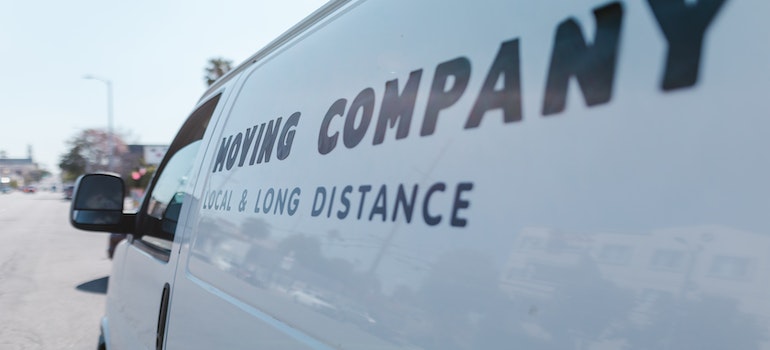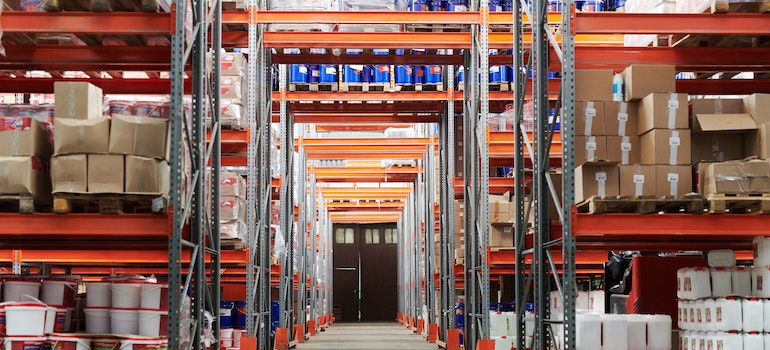Moving Your Inventory: Tips for a Successful Retail Business Relocation
Relocating your retail business isn’t just a simple move; it’s a strategic decision that can transform your brand. Knowing how to manage your inventory effectively during this transition is critical for your success. The best way to take the stress out of the process is by partnering with Best Cross Country Movers. This comprehensive guide is here to arm you with practical tips and strategies, ensuring your retail business relocation is a roaring success.
Planning is, as Always, Neccessary
The core of a successful retail business relocation lies in meticulous planning. “If you fail to plan, you’re planning to fail” rings especially true here. Begin by drafting a comprehensive moving plan. Write down each task, even if it seems insignificant at the moment. Attach deadlines to each task to create a manageable timetable. This roadmap will guide you and your team through the moving process.

Planning isn’t limited to tasks and deadlines; it also involves preparing your team for what lies ahead. If your business is making a cross-country move, it’s crucial to prepare your employees for this significant change. Discuss logistics, answer questions, and offer support. Keeping your team in the loop builds a collaborative atmosphere, crucial for tackling the challenges of a significant move.
Hiring additional help
In the realm of business relocation, choosing the right moving company can make all the difference. Don’t cut corners by opting for inexperienced movers; that could result in costly mistakes. Specialized commercial movers bring not only the skill set but also the specific equipment needed to move your valuable inventory safely and efficiently. These pros know the ins and outs of business moves and can navigate challenges that may not even be on your radar.
Let’s face it, running a business is already a high-pressure task. Adding the complexities and stressors of a move can overwhelm even the best multitaskers among us. That’s why hiring commercial movers that are highly trusted in your area can be a game-changer. They can take the burden of planning and logistics off your shoulders, allowing you to focus on keeping your business running smoothly. Trusting seasoned experts is your best bet for a move that minimizes disruption and maximizes efficiency.

The Significance of Inventory Management
Inventory management holds the key to a successful retail business, and this becomes especially crucial when you’re contemplating a move. Lack of organization in this area can create logistical nightmares you’d rather avoid. A meticulous inventory audit allows you to categorize items, identifying what is essential and what may be surplus to your needs.
By segregating items based on their type, value, and how often they sell, you’re better equipped to make informed decisions. This way, you can prioritize packing higher-value or fast-moving items while considering the liquidation of slow-moving stock. An organized approach ensures you pack exactly what you need, reducing the volume of goods to be moved, which in turn can lower your moving costs.
Smooth sailing with smart decisions
Beyond just facilitating the move, intelligent inventory management can set the stage for streamlined operations in your new location. Imagine starting fresh, with an organized stockroom where every product is strategically placed for easy access. No more wasted hours looking for items. Here, the benefits of renting a commercial storage unit can be invaluable. A well-chosen storage unit can act as an interim solution, allowing you the space and time to organize your inventory as you settle into your new location. This leads to improved productivity and enhanced customer service.
All in all, mastering your inventory ahead of a move is more than a short-term necessity; it’s an investment in the future efficiency of your business. From deciding what gets packed first to identifying items for liquidation, meticulous inventory management simplifies the relocation process and primes your business for effective operations in its new home.

Scouting Your Next Destination
Scouting the perfect location is a crucial step in the journey of retail business relocation. This move can be more than just a change of address; it can be an opportunity to level up your business. Take time to research key factors such as the demographic makeup of potential customer bases in different areas. How saturated is the market there? What’s the local competition like? Also, don’t forget about logistical considerations like how close you are to suppliers, as this can affect your inventory management and overall operational efficiency.
The right location will not just draw more customers but can also provide advantages in terms of operational costs. A well-chosen spot can result in lower rent, more favorable utility rates, and even tax benefits. So don’t rush this step; your choice of location could set the tone for this new chapter in your business journey.
Ideal states for business
When planning your relocation, selecting your new address is more than just a change in scenery; it’s a strategic business decision with long-term implications. Think about moving to one of the ideal states for business, where a combination of factors can help your retail operation thrive.
Key factors to consider are:
- Tax Advantages: States like Delaware or Nevada offer lower corporate taxes, increasing your profit margins.
- High Quality of Life: Areas like Colorado or North Carolina are known for excellent living conditions, making them attractive to potential employees.
- Strong Customer Base: A state like New York or California often has bustling communities and a demographic profile that could be a good match for your business.
So when you’re weighing your options, consider these factors and look into states that could offer your business the most significant advantages. Doing so puts you on a path to success in your new location.

Packing Your Inventory: More Than Just Boxes
Packing your inventory involves a lot more than simply putting items into boxes. The quality of the packing materials you choose is a critical factor in preventing damage to office equipment when moving. Opt for strong, durable boxes, high-quality cushioning materials, and heavy-duty packing tape. This is particularly crucial for your office equipment like computers, printers, and other delicate electronics.
Any damage to these could not only cost you in repairs or replacements but also result in downtime that impacts your business operations. Therefore, it’s not just about keeping your products safe, but also about ensuring that your tools of the trade get special attention to prevent any damage. By investing in the right packing supplies and techniques, you’re making a preventive effort to avoid losses and ensure a smooth relocation process.
Labeling for efficiency
Picking the right packing materials is just one of the many tips and tricks for moving a small business. Another critical factor for a successful move is labeling each box efficiently. Don’t simply list the contents; indicate where each box should be placed in your new store. This strategy will accelerate the unpacking stage significantly, allowing you to settle into your new space more quickly.
With every box that arrives, you’ll instantly know its designated spot, which saves time and reduces stress. Efficient labeling also minimizes the chances of misplacing items or ending up with a chaotic pile of boxes that takes days to sort through. Given that time is money, especially during a business relocation, efficient labeling becomes not just a convenience but a necessity.
The Magic of Technology
In the process of retail business relocation, inventory management software plays a pivotal role. This advanced tool automates tracking, allowing you to know exactly what items you have and where they need to go in the new location. The use of such software drastically minimizes the chance of human errors, making it a must-have for any retail business aiming for a hassle-free relocation.

Utilizing customer relationship management systems
When you’re in the middle of a big move, maintaining customer engagement is crucial. Customer Relationship Management (CRM) systems can assist significantly in this aspect. These platforms enable you to send targeted emails to your customer base, providing them with updates about your move, special promotions, or changes in services. In essence, a robust CRM system can help preserve and even enhance the customer experience during your business transition.
Streamlining tasks with project management software
During a move, it’s easy for tasks to become disorganized. Project management software can act as your roadmap, offering a systematic approach to assign and track tasks. Each team member can know their specific responsibilities and deadlines, helping to keep the entire moving process on schedule. In an undertaking as big as a business relocation, structured project management is invaluable.
Leveraging data analytics for insightful decisions
As you prepare for the move, don’t underestimate the power of data analytics. These tools can offer invaluable insights into customer behaviors, shopping patterns, and more. Understanding these analytics allows you to stock your new location intelligently, plan store layouts effectively, and even identify peak shopping times. Thus, data analytics are not just useful for your move but can also shape your business strategies in your new location.
Communication: The Bedrock of Teamwork
Open communication stands as the cornerstone of effective teamwork, especially during the high-stakes process of relocating your retail business. Consistent updates not only manage team expectations but also minimize misunderstandings that could derail the move. A fully informed team becomes an engaged team, ready to contribute to the relocation’s success.
But let’s not forget safety, an aspect often overlooked in the midst of a hectic transition. Clear communication ensures workplaces safety during the whole moving process. Safety guidelines, protocols for lifting heavy items, or emergency procedures should be clearly communicated to the entire team. Doing so ensures that everyone is on the same page, not just about the tasks at hand, but also about how to perform them safely. In the end, strong communication ties together operational efficiency and workplace safety, proving indispensable in a successful move.

Final Steps: Tying up Loose Ends
Before closing the doors of your old retail location for the last time, it’s crucial to have everything set up for a successful launch at your new storefront. From the legal side of things, this means making sure you’ve updated your address on all official documents, including business permits, licenses, and any other certifications. You don’t want to get caught up in bureaucratic issues when you’re trying to make a fresh start.
On the practical side, you’ll also want to ensure utilities like electricity, water, and internet are fully functional at the new site. Overlooking these basics could delay your re-opening, disrupt business operations, and end up costing you more in the long run. Therefore, a meticulous approach to wrapping up these final details will pave the way for a seamless transition to your new retail setting.
Flourishing Retail Business After Relocation
Undoubtedly, retail business relocation is a complex but necessary task for expansion and growth. From selecting a prime location to ensuring safe transport of your inventory, every detail counts. Hiring experts like Best Cross Country Movers can significantly ease the process. Careful planning, effective communication, and a solid understanding of your inventory are your keys to a successful transition. By adhering to these tips and strategies, your retail business is not just moving; it’s advancing toward a brighter, more prosperous future.

